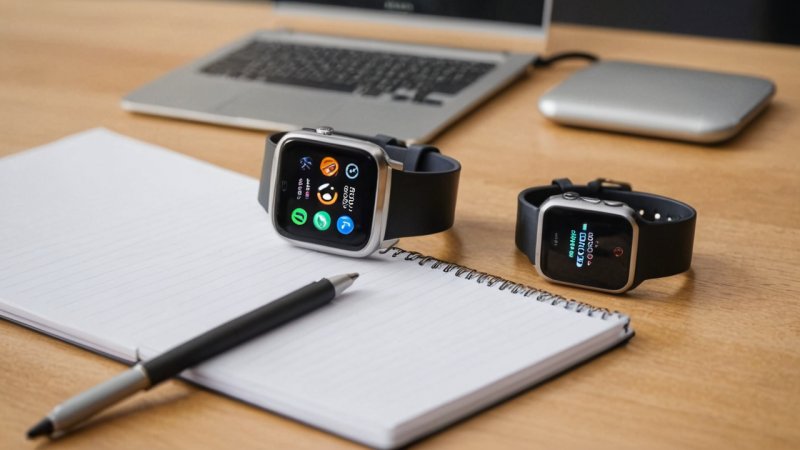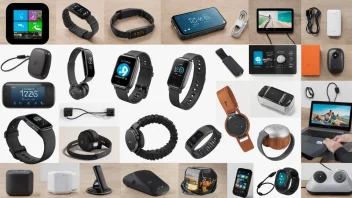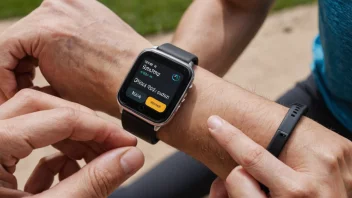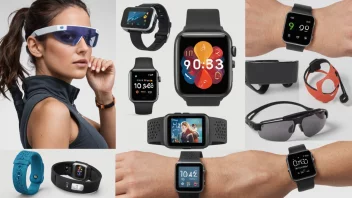In today's fast-paced world, managing time effectively is crucial for maintaining productivity and achieving personal goals. Wearable technology, especially smartwatches and fitness trackers, have emerged as valuable tools for helping individuals stay organized, monitor their health, and optimize their daily routines. This article will explore the differences between smartwatches and fitness trackers, comparing their features, benefits, and drawbacks to help you determine which device may be best suited for enhancing your time management skills.
Overview of Smartwatches
Smartwatches are multifunctional devices that offer a variety of features beyond simple timekeeping. They typically run on operating systems like Wear OS or watchOS, allowing users to install apps, receive notifications, and interact with their smartphones directly from their wrists.
Pros of Smartwatches
- App Integration: Smartwatches support a wide range of applications, from productivity tools to social media platforms, providing users with easy access to their favorite services.
- Notifications: Users can receive calls, messages, and alerts without reaching for their phones, streamlining communication and helping them stay focused on tasks.
- Customization: Many smartwatches offer customizable watch faces and straps, allowing users to express their style and preferences.
- Health Tracking: While primarily designed for notifications and apps, smartwatches also include health monitoring features like heart rate tracking and sleep analysis.
Cons of Smartwatches
- Battery Life: Smartwatches often require more frequent charging due to their numerous features, which can be inconvenient for users who prefer longer battery life.
- Cost: They tend to be more expensive than fitness trackers, which may be a deterrent for budget-conscious consumers.
- Complexity: With many features comes complexity; some users may find smartwatches overwhelming to navigate.
Overview of Fitness Trackers
Fitness trackers are more specialized devices focused primarily on health and fitness monitoring. They typically offer features such as step counting, heart rate monitoring, and sleep tracking, but may lack the broader functionality of smartwatches.
Pros of Fitness Trackers
- Focus on Health: Fitness trackers are designed to monitor various aspects of physical health, providing users with valuable insights into their fitness levels and habits.
- Extended Battery Life: Most fitness trackers have longer battery life compared to smartwatches, often lasting several days or weeks on a single charge.
- Affordability: Generally, fitness trackers are less expensive than smartwatches, making them accessible for a wider range of consumers.
Cons of Fitness Trackers
- Lack of Versatility: Fitness trackers usually don’t support third-party apps, which limits their functionality compared to smartwatches.
- Limited Notifications: While some fitness trackers offer notifications, they are often minimal and not as comprehensive as those provided by smartwatches.
- Design Limitations: Fitness trackers may not offer the same level of customization or style options as smartwatches.
Comparative Analysis
When considering how these devices can aid in time management, it’s essential to evaluate how their features align with your personal needs and lifestyle.
Time Management Features
Smartwatches excel in providing a comprehensive suite of productivity tools. They can integrate with calendars, task managers, and reminder apps, making it easy to keep track of appointments and deadlines. Fitness trackers, on the other hand, primarily focus on health metrics, which can indirectly support time management by encouraging users to maintain a balanced lifestyle.
User Experience
Smartwatches offer a more interactive experience, allowing users to respond to messages, check emails, and even control smart home devices—all from their wrist. This capability can help streamline daily tasks and reduce time spent on distractions. Fitness trackers, however, provide a more straightforward user experience with a focus on health-related data, which can motivate users to allocate time for exercise and wellness.
Best Use Cases
Smartwatches are ideal for individuals who want an all-in-one device that combines fitness tracking with productivity features. They cater to busy professionals or tech-savvy individuals who thrive on connectivity. Fitness trackers are best suited for those who want to prioritize their health and fitness without the additional distractions of a smartwatch. They are perfect for fitness enthusiasts or anyone looking to improve their physical wellness.
Conclusion
Ultimately, the choice between a smartwatch and a fitness tracker depends on your specific needs and how you prioritize time management in your daily life. If you are looking for a multifunctional device that combines productivity tools with health tracking, a smartwatch may be the best option for you. However, if your primary goal is to monitor your fitness and health metrics while keeping costs down, a fitness tracker could be the better choice. Consider your lifestyle, budget, and how you plan to use the device to make the most informed decision.






